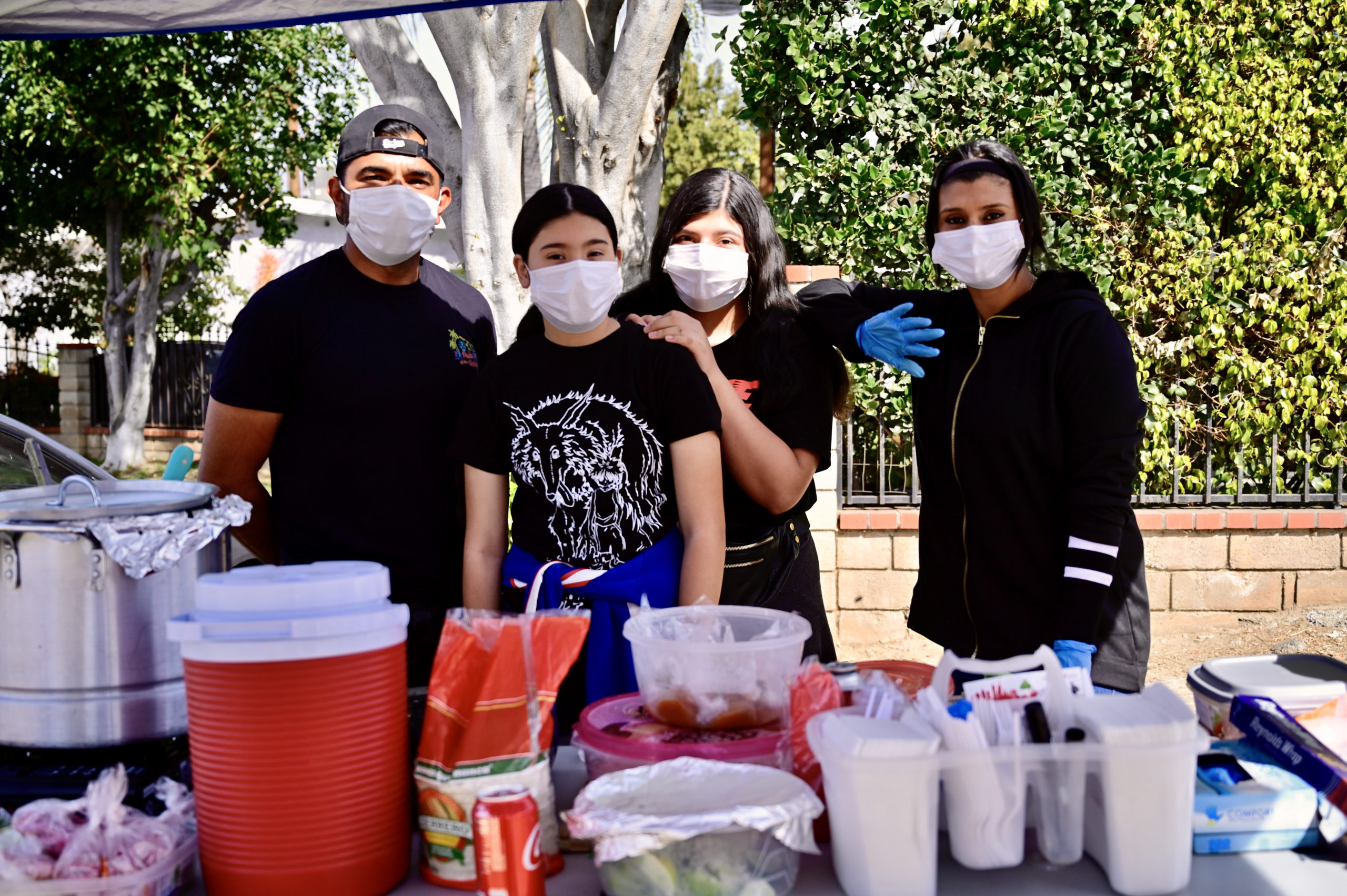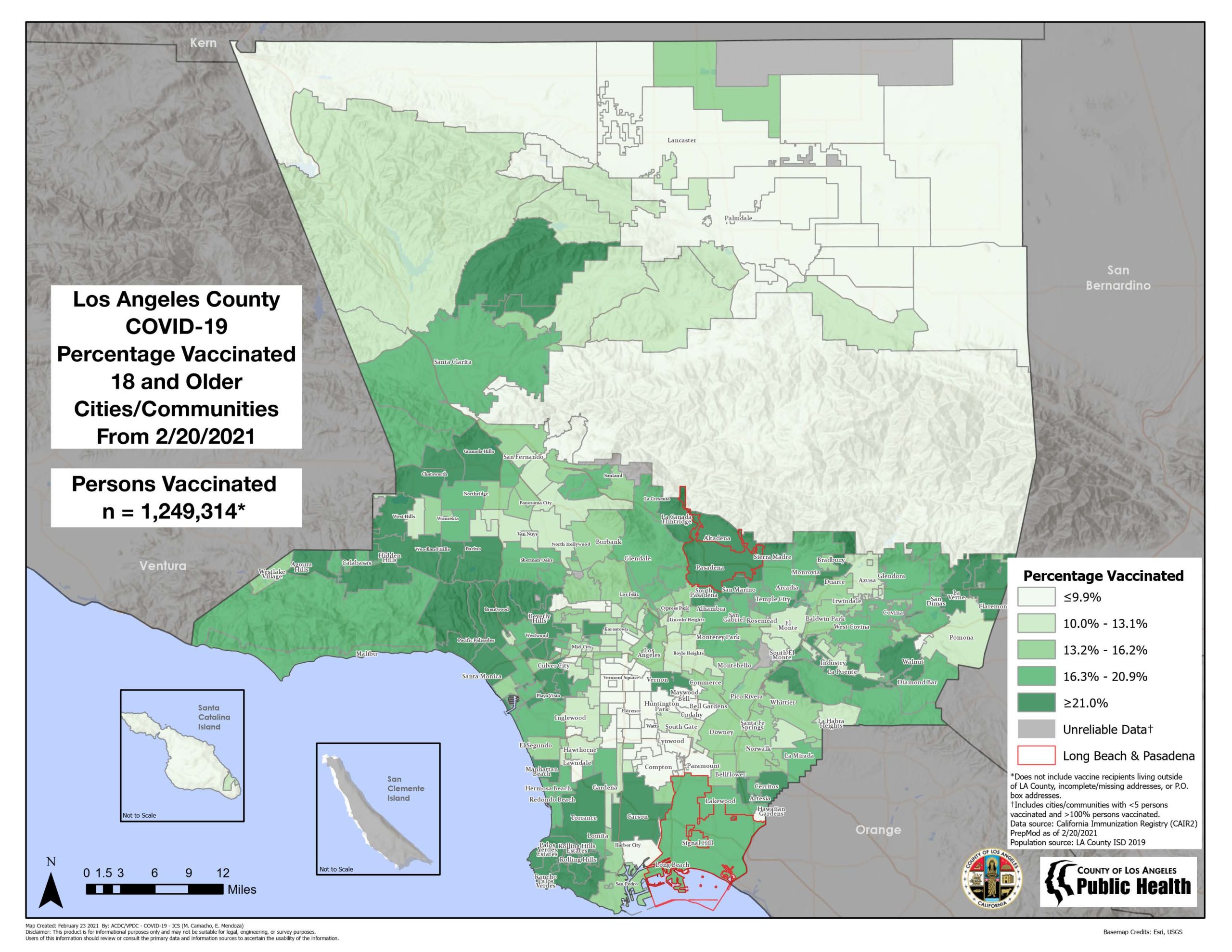While millions of Americans continue to struggle with the prevailing effects of the pandemic, Latinos in Los Angeles County continue to embrace a spirit of resilience despite being disproportionately affected by COVID-19.
In Covina, a family of four has resorted to selling tacos de canasta —translated as “basket tacos,” they area type of steamed taco — on the street as a way of making ends meet and also as an outlet for Consuelo Haro who fell into a deep state of depression after losing both of her jobs in March of last year.
Consuelo, a native of Nayarit, Mexico, mother of two and wife to Javier Gonzales, had worked in the restaurant industry for 18 years and was a Zumba dance instructor. After losing both of her jobs, she struggled with chronic stress, insomnia and anxiety from being unemployed and the worries that come along with having no money to pay bills or rent. It was all taking a toll on her mental and physical health.
Her husband, an experienced auto mechanic from Mexico City, has also been impacted by the amount of work available due to the pandemic but has been able to maintain steady paying opportunities. He saw how the situation was affecting his wife and was concerned for her health.
In an attempt to save his wife from the mental toll that stress was taking on her, and at the same time make a little extra cash, Javier suggested that Consuelo consider selling tacos de canasta on the street.
Their small business started three months ago on the corner of San Bernardino Road and Vincent Avenue in the City of Covina. Their 12-year-old daughter takes the orders, their 14-year-old daughter handles the money, Consuelo gathers and packages the food, while Javier assists with getting or carrying supplies and also serves as an extra-pair of helping hands.
This kind of taco is traditionally served for breakfast or lunch, and for Javier and Consuelo requires minimal time and effort to make. These tacos are steamed and kept warm to serve in a basket, thus the name.
Consuelo seems to be in much better spirits as she enjoys getting out of the house and spending time with her family.
In the upcoming week, if all goes well, Consuelo will start giving Zumba dancing classes again at a studio called Dancing Forever Fitness in Baldwin Park.
The California unemployment rate increased by 0.9% since November, according to a report released by the Employment Development Department (EDD) earlier this year. Per the report from January, the number of unemployed Californians was over 1.7 million this past December, an increase of 163,700 over the month, and up by 945,700 in comparison to December in 2019. And while Congress pushes to pass a COVID-19 relief bill, undocumented immigrants might be left out of stimulus plans.
Francisco Ayala, a flower street vendor on Myrtle Avenue by the 210 Freeway overpass in the City of Monrovia, is from El Salvador. He has resorted to selling flowers on street corners throughout the San Gabriel Valley to make a living after losing his job at a Denny’s restaurant on Wilshire and Vermont in Los Angeles.

Francisco worked at that Denny’s for over 13 years before getting furloughed in March of last year. He started as a busboy and then worked as maintenance personnel, a cook and at times even filled in as assistant manager.
He told me it has been difficult for him to find work and he has lost hope of getting his old job back anytime soon.
Francisco is an immigrant and has been living in California for 16 years. When he was working at Denny’s he paid taxes but receiving any type of financial assistance during the pandemic has been challenging. That’s why he joined a group of flower street vendors in Los Angeles last year.
Francisco is in a group of about five to six vendors who work for someone else who provides the flowers and transportation. In Francisco’s case, he is very familiar with the San Gabriel Valley area and travels using the Metro. He meets with the group on weekends as early as 7 a.m.
I asked Francisco if he felt safe selling flowers or if he or any of his colleagues had been asked to take their business elsewhere by local authorities. He said that he feels relatively safe and has not had an encounter with local authorities in Monrovia.
He did share that one of his colleagues who was selling flowers in Duarte had been warned and given a citation by local police. If he’s caught selling flowers again by authorities, he will get arrested.
I asked if he was concerned about the same thing happening to him, and he said no because he understands English pretty well and if local authorities ask him to leave, he will do so.
Unfortunately, all federal stimulus relief plans have excluded immigrants from receiving any type of financial assistance.
The National Employment Law Project (NELP) released a statement early last month urging Congress to assure that no immigrant is left out of the next coronavirus relief plan as they prepare to approve a stimulus package under President Joe Biden’s administration.
“The coronavirus does not distinguish between immigrant and non-immigrant, nor does it care whether someone is documented or not,” NELP wrote. “Millions of immigrants nationwide, both documented and undocumented, have disproportionately experienced the tragic consequences of this pandemic and our government’s inadequate response.”
But in California just last week, Governor Gavin Newsom signed a $7.6 billion coronavirus relief package, which includes a $600 one-time payment to immigrants who use a tax identification number to file their income taxes and earn $30,000 or less.
Perhaps the federal coronavirus stimulus plan will include the millions of immigrants like Francisco who are in dire need of it as well.







